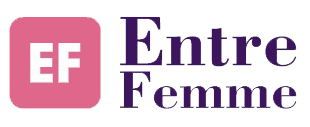Become a Programmer Today: Your Guide to Fast & Effective Learning
Ever dreamed of turning your coding ideas into reality? The world of programming can seem daunting at first, but with the right approach, you can unlock its potential faster than you think!
- Entrefemme
- May 14, 2025
- 0 Comments
- 2533 Views
This article is your one-stop guide to becoming a programmer today. We'll break down the learning process into easy-to-follow steps, introduce you to effective learning strategies, and equip you with the resources you need to master coding skills quickly and efficiently. Get ready to ditch the intimidation and embark on your exciting programming journey – starting today!
I. Understanding the Fundamentals of Programming
Programming is the art of giving instructions to a computer to perform specific tasks. To put it simply, programming is the process of creating a set of instructions that tell a computer how to perform a task. And to get basic notions of programming, what better way to start than with the basics, namely algorithmics?
1. What is Algorithmics?
Algorithmics is the very heart of programming, as it forms the basis for solving computer problems. Indeed, every computer program is essentially a series of algorithms designed to accomplish a particular task. Understanding the basic principles of algorithmics is therefore essential for any aspiring programmer.
At the core of algorithmics are key concepts such as data structures, which determine how information is organized and manipulated, and sorting and searching algorithms, which allow for efficient sorting and searching of data. Additionally, algorithmic complexity analysis provides a way to evaluate the performance of an algorithm in terms of time and space.
Once these concepts are well established and understood, it's time to move on to the next level, which is understanding the programming language.
2. Programming Languages
Remember the definition of programming, "the art of giving instructions to a computer"? Programming languages serve as a bridge between humans and machines, allowing programmers to express their ideas in code that computers can understand. Among the most popular languages are Python, JavaScript, Java, C++, C#, and many others. Each language has its own characteristics, advantages, and use cases.
Python, for example, is widely appreciated for its simple and readable syntax, making it an excellent choice for beginners. JavaScript is primarily used for web development, while Java finds applications in Android app development and enterprise systems. C++ is often preferred for its efficiency and performance in software and game development.
3. The Importance of Specialization
While every programming language has its strengths and areas of application, specializing in a specific language can offer significant professional benefits. Becoming an expert in a particular language can open doors to exciting and well-paid career opportunities, in addition to allowing you to make meaningful contributions to projects and initiatives.
However, choosing the right language for specialization can be a delicate decision. It's important to consider your own interests, career goals, as well as market trends. By investing time and effort into learning and mastering a specific language, you can position yourself advantageously in the job market and make meaningful contributions to the programming world. Currently, due to the rise of AI, Python is increasingly favored, but it's up to you to conduct your own investigations. If you want, I can assist you with that, just let me know in the comments.
II. Efficient Training
Knowing your programming language is good, but mastering it is even better. Today, everything is on the internet, and you can easily navigate on your own. However, believe me from my own experience, sometimes formal training saves a lot of time and money. In this section, we'll explore various training options available for aspiring programmers, highlighting boot camps, university courses, and other online resources.
1. Bootcamps
Programming boot camps are intensive programs designed to quickly teach the skills needed to start a career in software development. Based on an immersive approach, these boot camps offer a practical, project-focused experience, you can sign up for sboocamp programs such as the wagon, General Assembly, App Academy and many others.
In addition to ALX, there are several other reputable boot camps worldwide, each offering different structures and durations to meet students' needs. For example, Le Wagon is known for its nine-week web development program, while App Academy offers a 16-week boot camp covering various topics, including web development and iOS development. General Assembly also offers a range of boot camps, from web development to digital marketing, tailored to various career aspirations. Let's not forget to mention Coursera, Udemy, and Codecademy, which have received good customer feedback in recent years.
2. University Courses
University programs in computer science offer a more traditional approach to learning programming, but they remain a valuable option for those seeking formal and in-depth education in the field. These programs offer a comprehensive curriculum covering not only programming but also related subjects such as mathematics, information theory, and computer systems.
Renowned universities such as MIT, Stanford, and Harvard offer undergraduate and graduate programs in computer science, with opportunities for research and collaboration with industry experts. It's crucial to conduct thorough research and select the program that best aligns with your career and academic goals.
3. Other Online Resources
In addition to boot camps and university programs, there is a plethora of online resources available for learning programming. Websites like Coursera, Udemy, and edX offer a variety of online courses taught by expert instructors, covering a range of topics from introductory programming to more advanced subjects like artificial intelligence and data science.
Furthermore, online communities such as Stack Overflow and GitHub provide discussion forums and practical resources for programmers of all levels, allowing you to ask questions, share knowledge, and collaborate on open-source projects.
III. Practical Tips for Programmers
In this section, we will share practical tips to maximize your effectiveness as a programmer, taking into account your current experience and training.
1. Tips for Beginners
If you're new to the world of programming, it's normal to feel a bit overwhelmed. Here are some tips to help you get started:
- Regular Practice: Practice is key to becoming a good programmer. Dedicate time each day to write code, even if it's just for a few minutes. The more you practice, the better you'll get.
- Code Reading: Get into the habit of reading other people's code. This will help you understand different approaches and programming styles, and learn new techniques.
- Participation in Open Source Projects: Contributing to open-source projects is a great way to learn and develop your skills. Look for projects that interest you and start contributing as soon as possible.
2. Tips for Intermediate Programmers
If you've already gained some experience in programming, here are some tips to continue progressing:
- Participation in Hackathons: Hackathons are events where you can collaborate with other programmers to create projects in a limited time. It's a great opportunity to learn new technologies, work as a team, and put your skills to the test.
- Creation of Personal Projects: Find projects that you're passionate about and create them from scratch. This will allow you to apply your programming skills in a real-world context and develop an impressive portfolio.
- Seeking Mentorship: Find mentors or more experienced individuals in the programming field who can guide and advise you. Mentorship can help you overcome obstacles and progress faster in your career.
- Perseverance and Proactive Problem-Solving: Programming often involves challenges and errors. Learn to persevere through obstacles and adopt a proactive approach to problem-solving. Use available resources like online documentation and discussion forums to find solutions to the problems you encounter.
IV. Testimony: From Mathematician to Programmer
My name is David, and I am a living example of the successful transition from a mathematician to the exciting world of computer programming. After earning my degree in mathematics, I decided to change course and immerse myself in the field of computer science. Here's my journey so far:
After exploring various opportunities in the field of computer science, I quickly realized that programming was my true passion. I began teaching myself the basics of programming, delving into the Python language due to its simplicity and versatility.
Over time, I gained a solid understanding of the fundamental concepts of programming, but I knew I needed to go further to achieve my career goals. That's when I had the opportunity to receive a scholarship from ALX (Africa Leadership Experience) for an intensive one-year training program.
My journey at ALX was a real eye-opener. I started by mastering the basics of algorithmics, then delved into the C language, and further honed my skills in Python. Currently, I am specializing in backend development, focusing on Python and Node.js languages.
This experience has allowed me to develop not only my technical skills but also my problem-solving, collaboration, and communication skills. Thanks to ALX, I was able to gain practical expertise in the field of programming and prepare for a successful career in the rapidly growing technology industry.

 | Unlock Success with Our Guide
| Unlock Success with Our Guide



0 Comments